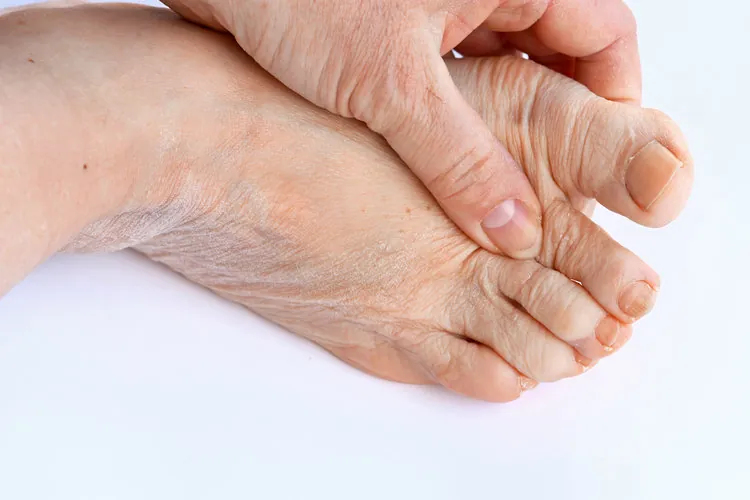What is Gout?
Gout is a form of arthritis that leads to sudden, intense pain and swollen joints that may become red and hot. More than 50 percent of gout attacks start in the big toe, but gout can occur in any joint. Knees, ankles, feet and fingers are other common sites. Gout attacks often occur, without warning, in the middle of the night.
million Americans have gout
of gout attacks start in the big toe
more days of missed work annually by people with gout
What causes gout?
Gout is caused by a buildup of uric acid, a naturally occurring waste product, in the body. Excess uric acid collects when the kidneys aren’t able to remove it well enough.
Hereditary factors often lead to the development of gout. Some foods, such as certain types of fish, red meat, alcohol and sugary drinks, may also contribute by raising uric acid levels in the blood. Certain medications can also trigger gout.
It’s best to talk with a gout specialist if you are experiencing any signs of gout.

How is gout treated?
Gout is treatable, but not curable. There are several approaches to addressing gout, though they vary by patient.
The first involves controlling joint pain. Your doctor may prescribe anti-inflammatory drugs or corticosteroids to help with this.
The second approach involves decreasing the amount of uric acid in your blood. Lowering uric acid levels in the blood can prevent or lessen painful attacks and reduce the risk of gout complications such as kidney stones and the development of tophi (a deposit of uric acid crystals).
Doctors may also recommend lifestyle changes that can help decrease symptoms. These include weight loss, less alcohol consumption and limiting certain foods.

Who develops gout?
Though the experience of gout can be isolating, the disease is quite common. Gout affects more than 12 million Americans.
While gout primarily affects middle-aged and older men, younger men and women of all ages can have gout – though children almost never have gout. A family history of gout increases the likelihood of the condition developing, as does being overweight. One misconception is that only people who eat poorly or drink alcohol in excess suffer from gout. In fact, people who eat healthy food and refrain from alcohol can still develop the condition.

How does gout impact people and society?
Gout’s painful attacks can be debilitating. It is common for gout patients to have trouble walking, climbing stairs or completing everyday tasks like caring for family members or doing household chores.
Gout also impacts patients’ workplaces and communities.
Not treating gout can result in attacks that are more frequent or longer in duration. One study found that employees who suffered more than three gout attacks annually, as compared to those who experienced fewer than three, had increased emergency department and urgent care visits. They also had greater short-term disability costs.

What about stigma?
Social stigma about gout reflects the need for improved education. The long-held misconception of gout – the “disease of kings” – as a punishment for gluttony ignores the role of genetics in disease development. Affected patients, too embarrassed to seek treatment, may suffer in silence.

Should I tell my family and friends if I have gout?
Misconceptions about gout can make people reluctant to talk about their condition with family and friends. But open communication is important. You might start by explaining that gout is a form of severe arthritis that can be caused by different factors. This information may help change people’s perception of the condition.
It’s also important to share your experience so that you have family and friends’ support – not only during a painful attack, but also as you work toward a new diet or exercise regime, should your doctor recommend these lifestyle changes.
